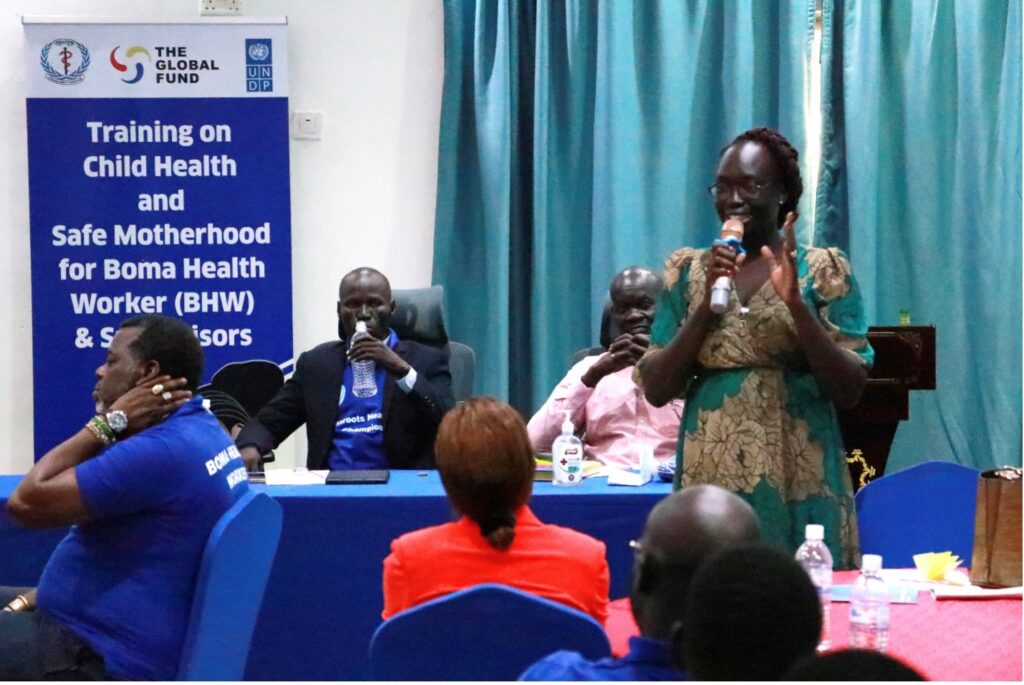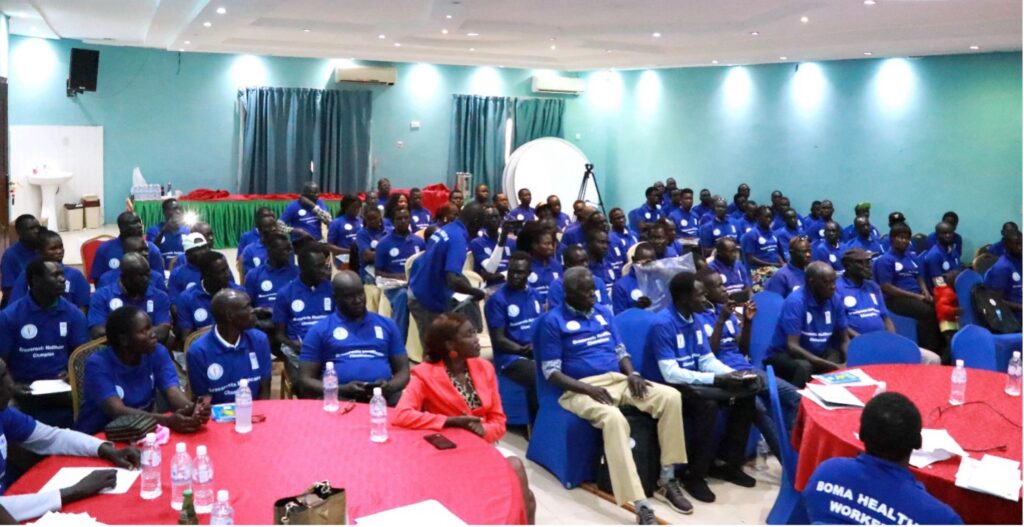After years of violent conflict and economic hardship, the South Sudanese health system is struggling to provide quality care to the populations who need it most. Together with the Ministry of Health, the Global Fund and the United Nations Development Programme (UNDP), Cordaid improves the healthcare infrastructure, addresses socioeconomic inequalities, and promotes education and awareness.

In South Sudan, complications during pregnancy and childbirth are a major cause of death for women, particularly in rural areas where healthcare facilities are scarce. Too often, women have to travel great distances to receive the care they need, which dangerously delays crucial treatments and heightens the risks of complications.
Children under the age of five are also especially vulnerable to a variety of health issues, including common diseases such as pneumonia, diarrhoea, malaria, and malnutrition.
Boma Health Initiative
In 2017, the Ministry of Health launched the Boma Health Initiative to tackle these challenges. This flagship programme aims to provide health services to remote communities with limited or no healthcare facilities and to bridge the gap between the communities and the health services.
With support from the Global Fund and UNDP, Cordaid provides technical assistance to the Ministry of Health in building robust and resilient community health systems, through an intricate network of Boma (Village) Health Workers.
From the 2,500 health workers and 135 supervisors planned for recruitment under this grant, Cordaid will support 1,500 and 81 of them, across five states and three administrative areas.

Health for All
This effort will expand the coverage of the initiative and ensure that all communities in South Sudan have access to basic healthcare. The health workers serve as the initial point of contact between the community and the health system.
The training is conducted in phases. The first phase, held in the capital Juba in July, was a nine-day gathering to equip the health workers with the skills and knowledge they need to deliver quality health care.
This approach supports the ability of local actors to sustain and deliver development results by moving from capacity building to capacity strengthening.
‘The newly graduated health workers will serve their communities by treating children with pneumonia, diarrhoea, and malaria. They will also screen for malnutrition, care for pregnant women, and organise vaccination campaigns,’ says Solomon Anguei, the Boma Health Initiative Coordinator for the Ministry of Health.
Fostering healthy communities
Over the years, Cordaid has consistently supported the ministry in its efforts to improve rural healthcare services, save lives, and target pregnant mothers and children under five by identifying disease outbreaks, referring emergencies, and sensitising women on reproductive health, pregnancy, childbirth, nutrition, hygiene, and recognising pregnancy complications.
By focusing on maternal and child health, we can foster healthier communities and a brighter future for the people of South Sudan.